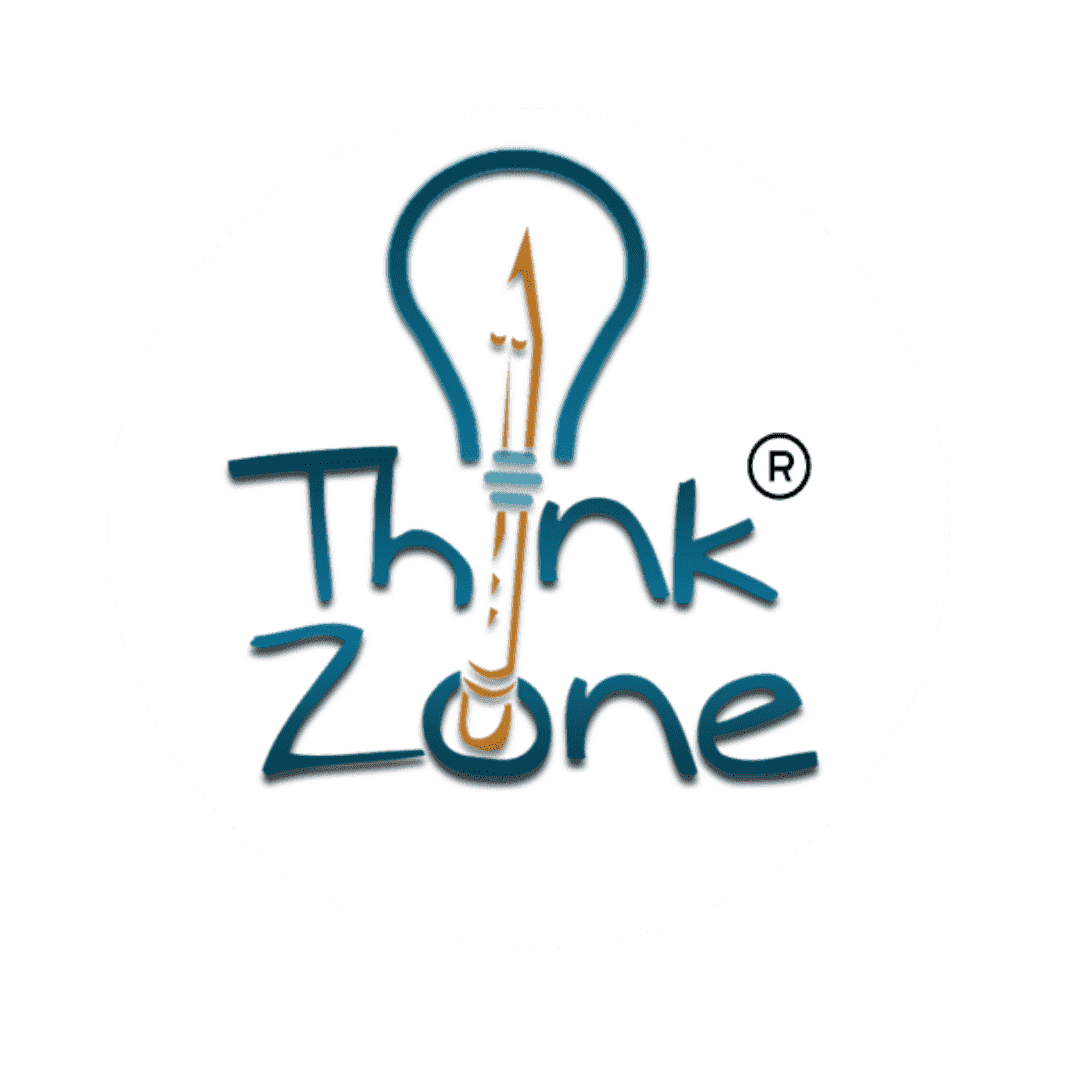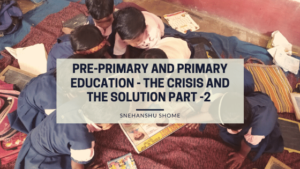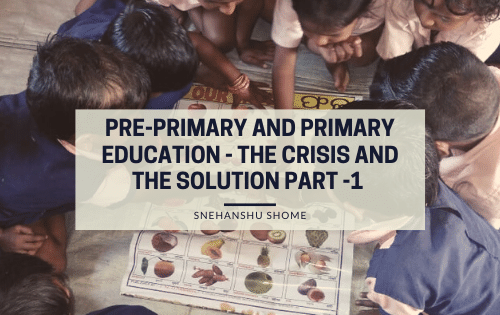I have been working with ThinkZone for more than two years. And at ThinkZone our aim is to make learning fun and meaningful so that children should not feel burdened. Once I asked our Founder & CEO Binayak Acharya, ‘What do you mean by learning’? He smiled and said ‘Learning is like water’. It took me days to find out how learning can be like water.
Let’s understand the definition of learning. Learning is “a process that leads to change, which occurs as a result of experience and increases the potential for improved performance and future learning” (Ambrose et al, 2010, p.3). This means because of our previous experiences our schema, a cognitive framework or concept that helps organize and interpret information, undergoes change. The change here not only indicates academic knowledge but also knowledge about the world, our attitude, behaviour, psycho-social skills, interpersonal skills.
If learning is a relatively permanent change in our behaviour, attitude, how does and where does it occur? Well, there are many learning theories that describe how we learn. Learning happens through association (Ivan P Pavlov), consequences of our actions (B. F. Skinner), observation (Albert Bandura). Learning is a multidimensional process. It occurs in a variety of ways, and a wide range of factors can influence how and what people learn.
Do you remember our grandparents used to tell us stories? They were not telling stories to make us sleep but to imbibe values within us. Through stories we learnt ethics, values, morality, justice etcetera. This means learning did not occur in schools, it occurred in our social environment. As Binayak Acharya says, “An excellent socio-economic background and educational infrastructure automatically seem to reflect everyone that learning is happening”. Learning has no boundary. It is formless. Every day we learn something, be it a cooking recipe or a map reading. Both are expanding our knowledge about the world.
Do you remember how you learned your mother tongue? Was there someone specific to teach you how to say ‘mother’, ‘father’. No, right? We listened, observed people speaking and slowly learnt to speak. Now would you not associate this with learning? “Learning is much more than just reading and writing. Learning can also be about the child listening, observing, or analyzing something”, Binayak says. Learning involves social activity involving people, the things they use, the words they speak, the cultural context they’re in, and the actions they take (Bransford, et al., 2006; Rogoff, 1998). Learning genuinely can happen everywhere.
As an organisation, making the community understand that children can learn from anywhere was a tough task for us. We did three things that changed the perception of learning of all.
- Involving parents in education, irrespective of what they have studied
- Using daily objects in the classroom like a ball, matchbox, thread, pictures etc.
- Introducing games, songs, stories as teaching strategies
We involve parents in their children’s learning through text messages and phone calls. Parents can ask & understand their children’s difficulties as well as teach them through household items, stories and small games. At our learning centres, ThinkZone fellows use chocolate wrappers, old newspapers, picture cards as teaching-learning materials. When our fellows ask children to read words and recognise letters from chips packets or chocolate wrappers, their interest level goes up. Because they use these things every day and want to know more about them. The games children play at home or with their friends, we tweak those games and make them as learning games. Now children are more than happy to learn through games.
These three things changed the perception of learning among children and parents. As Binayak correctly says, “One does not always require flashy things to bring about positive change or for creating learning opportunities for children. Innovation doesn’t have to mean new, bright, and shiny. It can be as simple as perfecting something that we know works. Sometimes proactively doing the same old thing gives the desired result. We believe in simple solutions and honestly believe that reinventing the wheel is unnecessary”. Irrespective of the parents’ education, if the right nudge is provided to them through localized solutions and accessible technology – they very well can support children in their learning process. So, at ThinkZone we work with communities to support at-home learning for children using remote instructions by phone and simple text messages. And when parental engagement is connected to the child’s development through these simple solutions, what emerges is the realization that Learning can genuinely happen anywhere.
Our thinking of learning is reading, writing, and solving math problems. Learning is much more than just rote learning or knowing about information. Learning is understanding, connecting the dots. We see learning from a small lens. And associate learning with educational background, good college degree. But it is not necessary. A good education does not imply good learning. Learning can not be confined to four walls or a device. It is a fluid, dynamic, flexible, and very adaptive process, just like water.
Watch this TEDx talk of Binayak to know how learning is truly shapeless: https://www.youtube.com/watch?v=V1DOdQfPsgg


